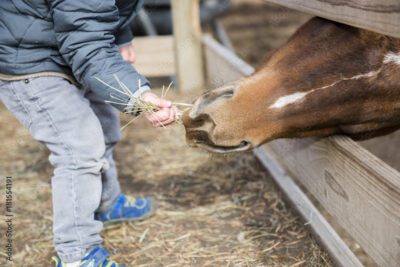By Christine Denise
Autism Mom and Contributing Writer for As You Are, a virtual clinic dramatically increasing access to early autism diagnostic services through the use of exclusively telehealth appointments
When my husband or my other children can’t find me or my son who has autism, they know where to look.
They call it potty snuggles.
When my son Louie gets off the toilet, and we work on pulling his pants up, sometimes he just wants to bolt out of there to try to avoid washing his hands.
Most times, though, he wants to curl himself up into as small of a ball as he can and snuggle in my lap.
Sometimes, it’s just for a brief moment.
Other times, it lasts for 10 to 15 minutes at a time.
And no matter what else I have going on in those moments, it all stops so his need to connect with me in a calm moment can happen.
His teachers frequently complain how there is no way to get him to sit still. Heck, my husband and I often complain about it, too.
It seems he’s always a kiddo in motion, even when he’s sitting, he’s flapping his hands, chewing his chewy necklace, or pushing his feet against a wall just to feel the pressure on his toes.
But when it’s potty snuggle time, he sits in silence, perfectly still.
He doesn’t try to make a sound.
He doesn’t react to any sounds around him.
He doesn’t seek any other sensory input.
The only thing he feels is my arms resting around him.
I will ask him if he is ready to go play with his iPad, or go get his pajamas or go get ready for school or eat, or whatever his next activity is going to be.
When he wants to snuggle, he doesn’t budge.
The absolute quiet we share in this most unexpected way is something I treasure so very much.
For him, showing affection can sometimes hurt. He oftentimes bites my shoulders when I pick him up to greet him. He sometimes pulls my hair. He will kick me with the back of his heel if I sit next to him on the couch just so a part of his body can touch mine. Sometimes he hits me, not hard, but enough to catch me off guard if I let it down for a minute.
None of these things are done out of aggression.
It is simply his sensory seeking way of reacting to the joy he feels when he sees me for the first time after work, or, even sometimes, just because he’s happy I’m there.
For my typical children, affection is predictable. I know it’s coming, based on what they say to me or how they move toward me. And I treasure their affection just as much.
For a child with autism, affection is something that comes in lots of unpredictable ways.
For us, it’s me sitting on the side of our bathtub with my little man curled up, resting his head on my chest, his knees tucked under his bottom and his arm around my waist.
And I absolutely love it, just like I love him.
Do you have questions about your child’s development? The team at As You Are provides useful autism screening and diagnostic evaluations for kids 16 months to 10 years old via telehealth appointments.
Disclaimer: I am not a medical professional. This is a sponsored blog post, but all opinions are my own.


















